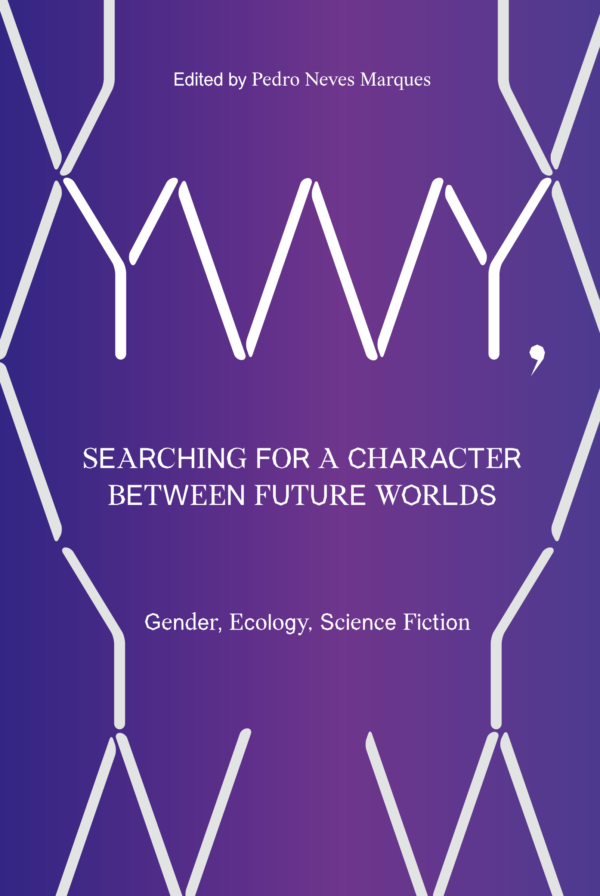
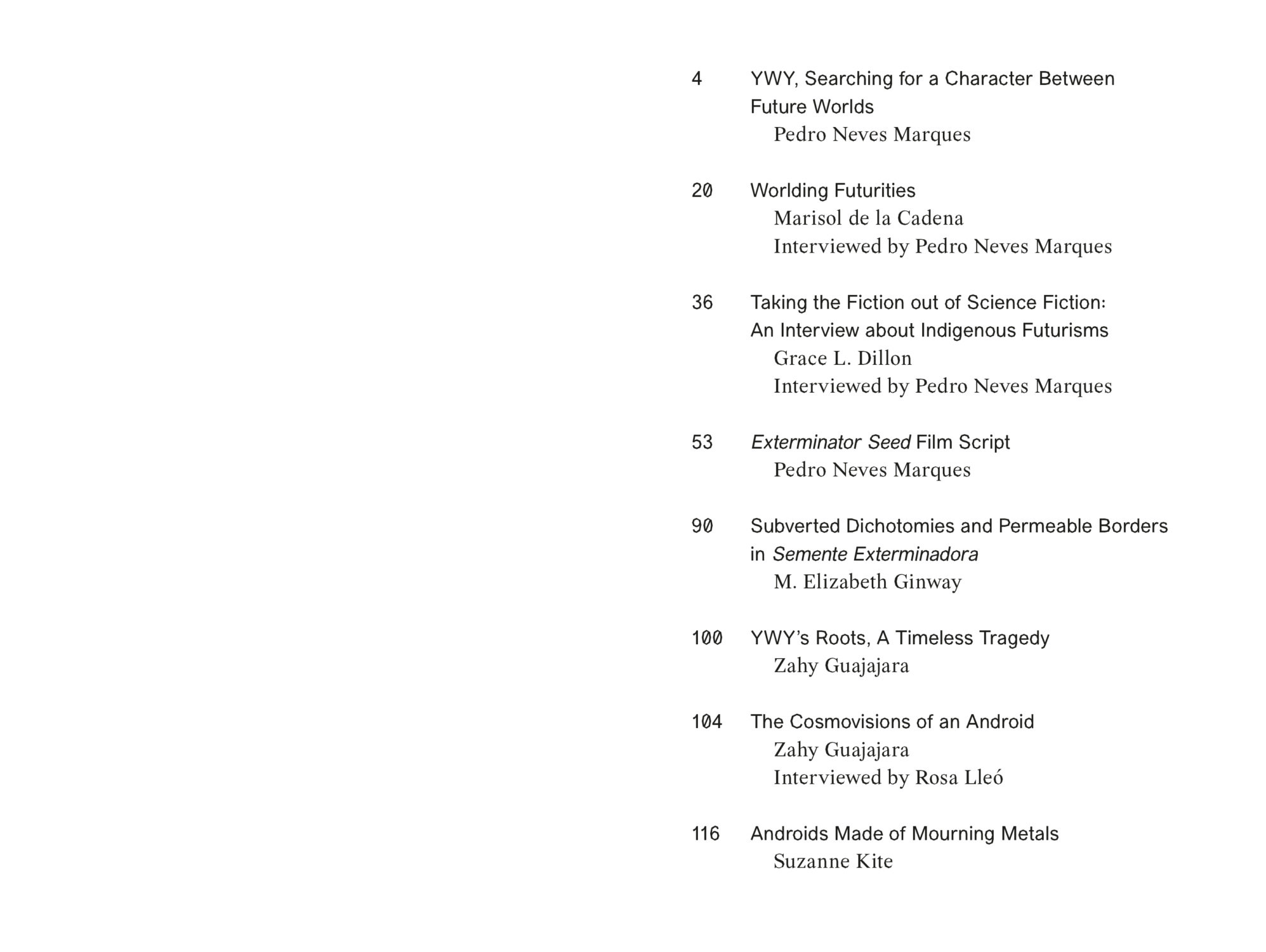
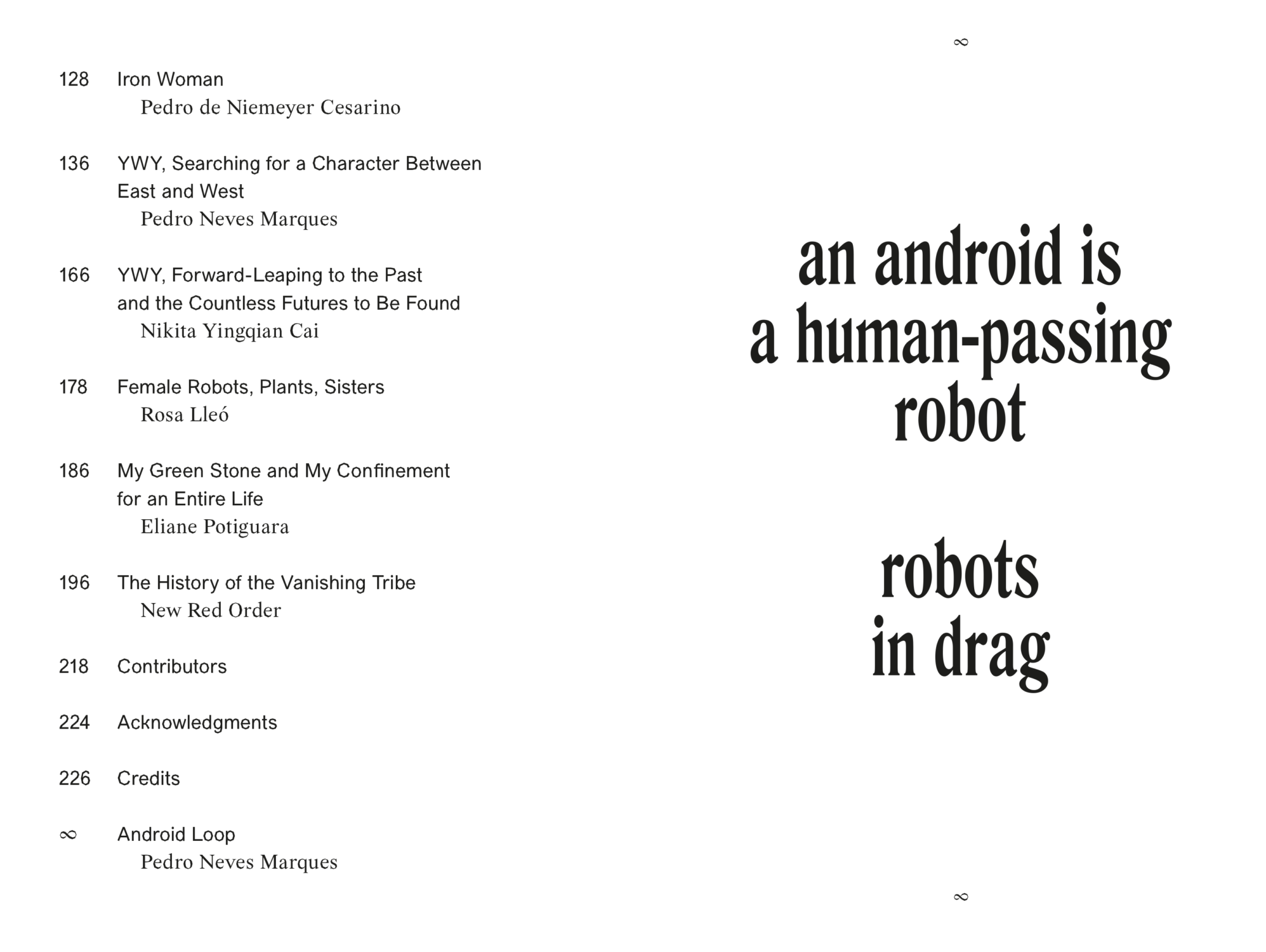
YWY, Searching for a Character Between Future Worlds: Gender, Ecology, Science Fiction
Edited by Pedro Neves Marques
(Sternberg Press, 2022, 232 pages)
Conceived by Pedro Neves Marques, YWY is an android played by indigenous actress and artist Zahy Guajajara, who gave her the name “YWY,” meaning “land” or “territory” in her native Tupi-Guarani language. The character’s co-invention by a white European author and a native artist from Brazil sets in motion a dynamic that can be resolved only by being given away and shared with a plurality of voices. YWY, Searching for a Character Between Future Worlds shares the fictional character of YWY with several authors from Brazil, the United States, and beyond, creating a conversation about science fiction and robotics, ecology and gender, Indigenous Futurisms and what it means to be human.
Contributions by Marisol De La Cadena, Grace L. Dillon, Nikita Yingqian Cai, Pedro De Niemeyer Cesarino, M. Elizabeth Ginway, Zahy Guajajara, Suzanne Kite, Rosa Lleó, Pedro Neves Marques, Eliane Potiguara, and New Red Order.
Buy the books at Sternberg Press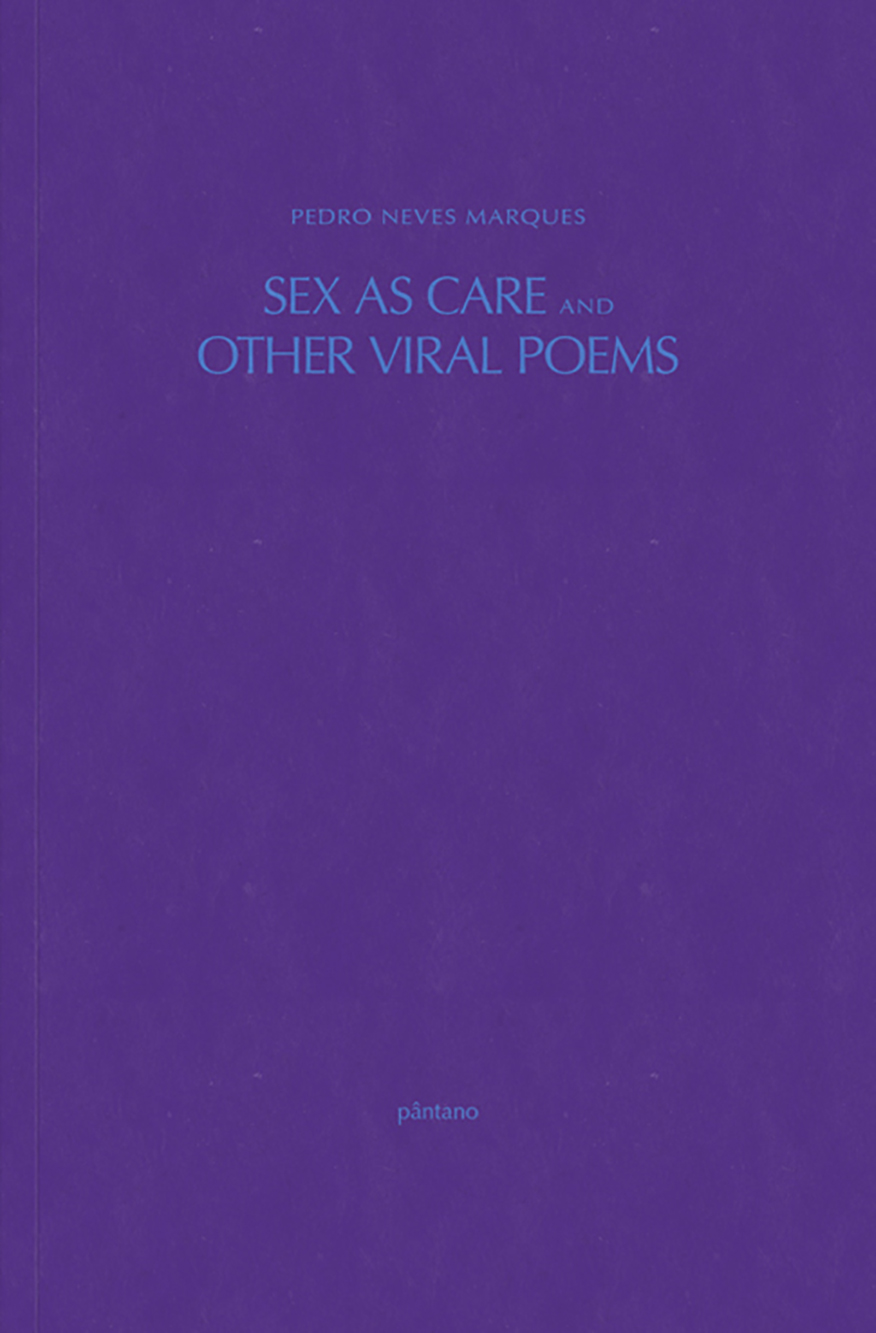
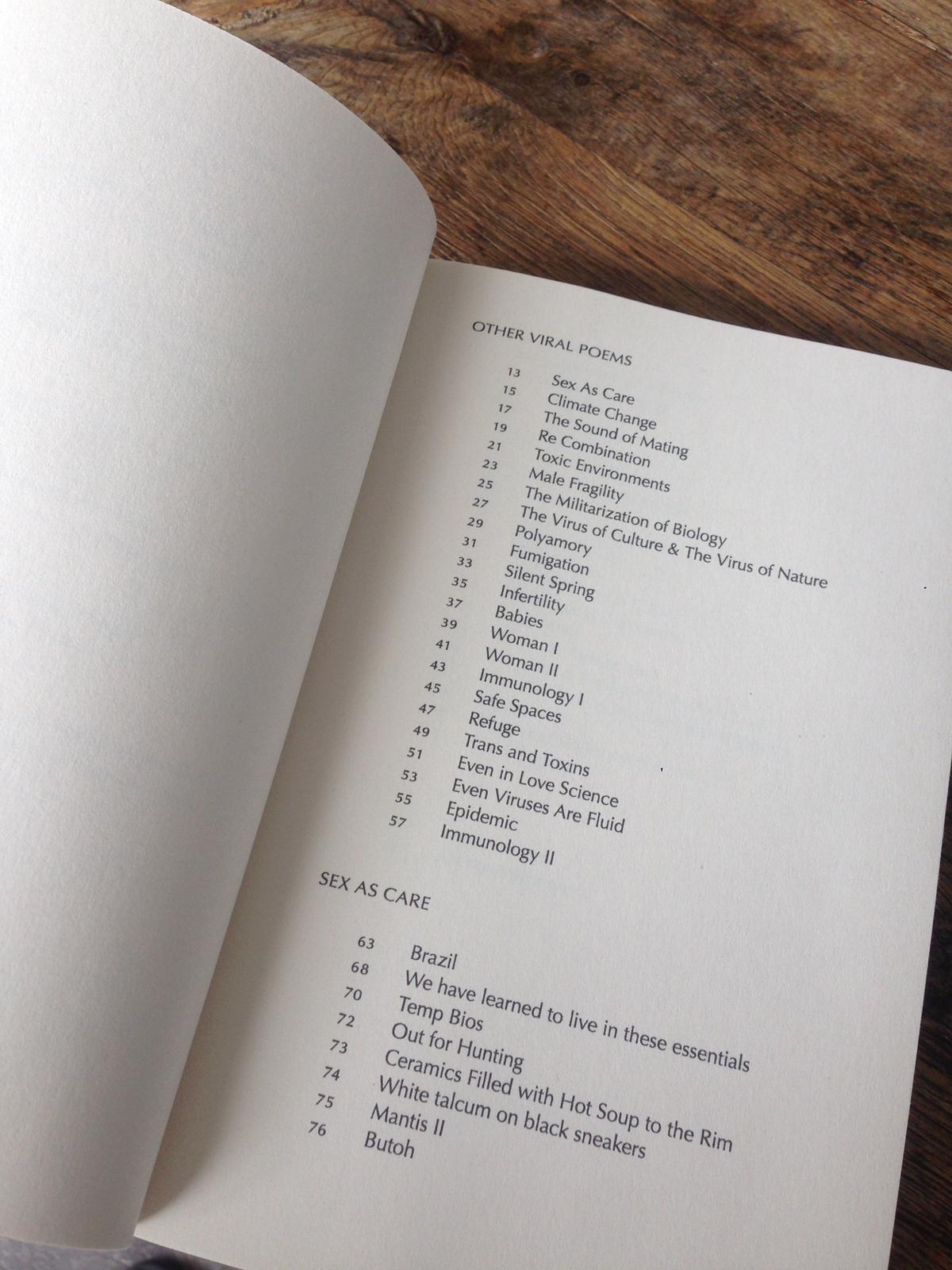
Sex as Care and Other Viral Poems
Poetry collection by Pedro Neves Marques
(pântano books / livros do pântano, 2020)
Pedro Neves Marques's first poetry collection includes two sets of poems written between 2017 and 2019 and spans the author's biographical geographies, from Brazil and Lisbon to London and New York. From precise geometries to tragicomic gestures and long free verse confessions, Neves Marques’s poetry moves with great honesty between deep social analyses to the tactile quality of remembrance. Whether in a long and devoted poem tying together friendship and historical legacies across the Atlantic in “Brazil” or in the condensed and timed recollections of “Thirteen Days in Lisbon,” the poems collected in "Sex as Care" acknowledge the reality of both care and violence in intimacy. For their part, "Other Viral Poems" takes a more programmatic approach, drawing an analogy between the spread of the Zika epidemic in Brazil, the genetic modification of its carrier mosquito, and the rise of fascism to mount a critique of both gender biases in science and anti-queer populisms. In orderly fashion, the poems coopt a militaristic and technical language to instead create spaces of intimacy where gender, love, trust, and unequal experiences are tested.
You can read a selection of poems here: Sex as Care and Other Viral Poems
Buy books at pântano books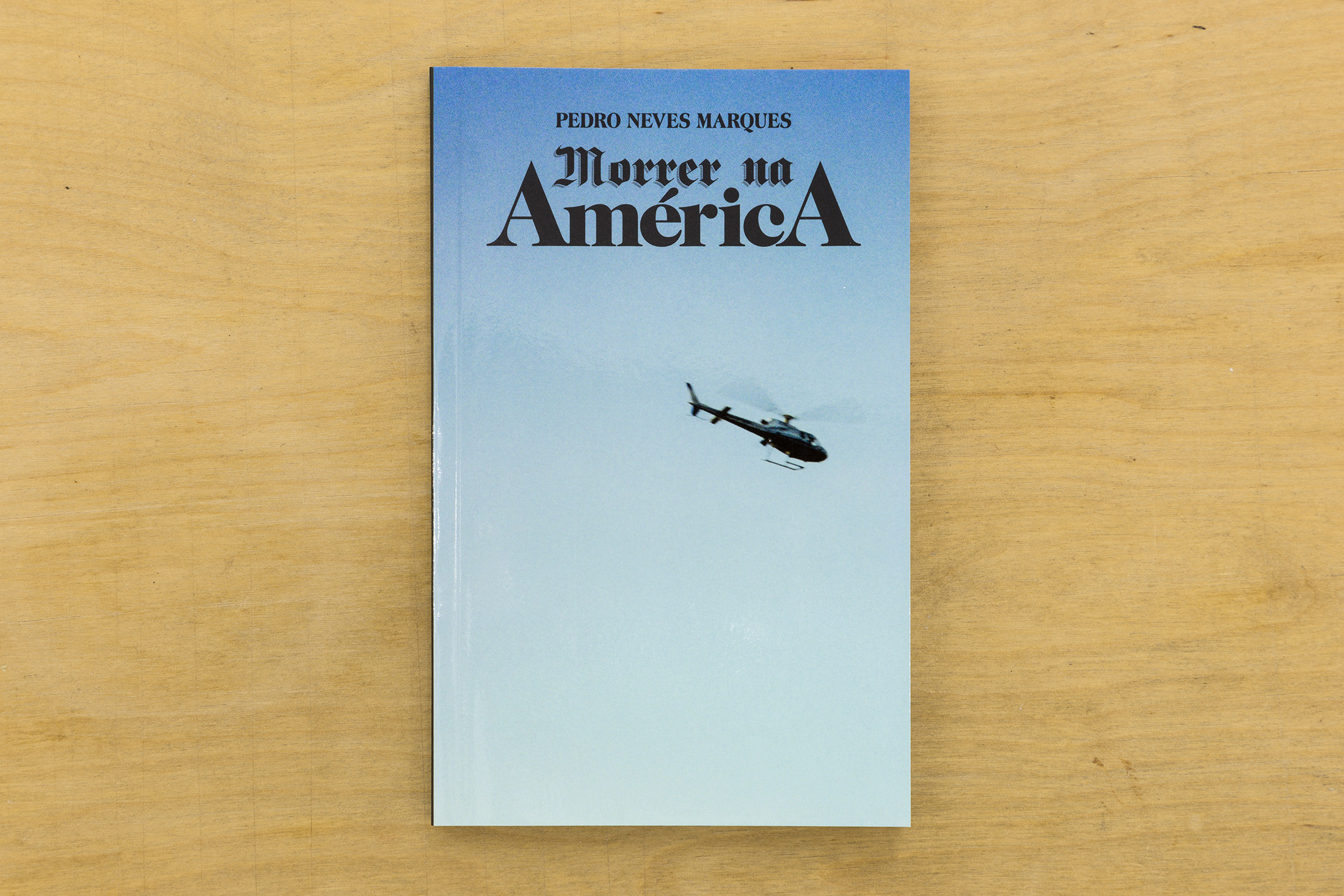
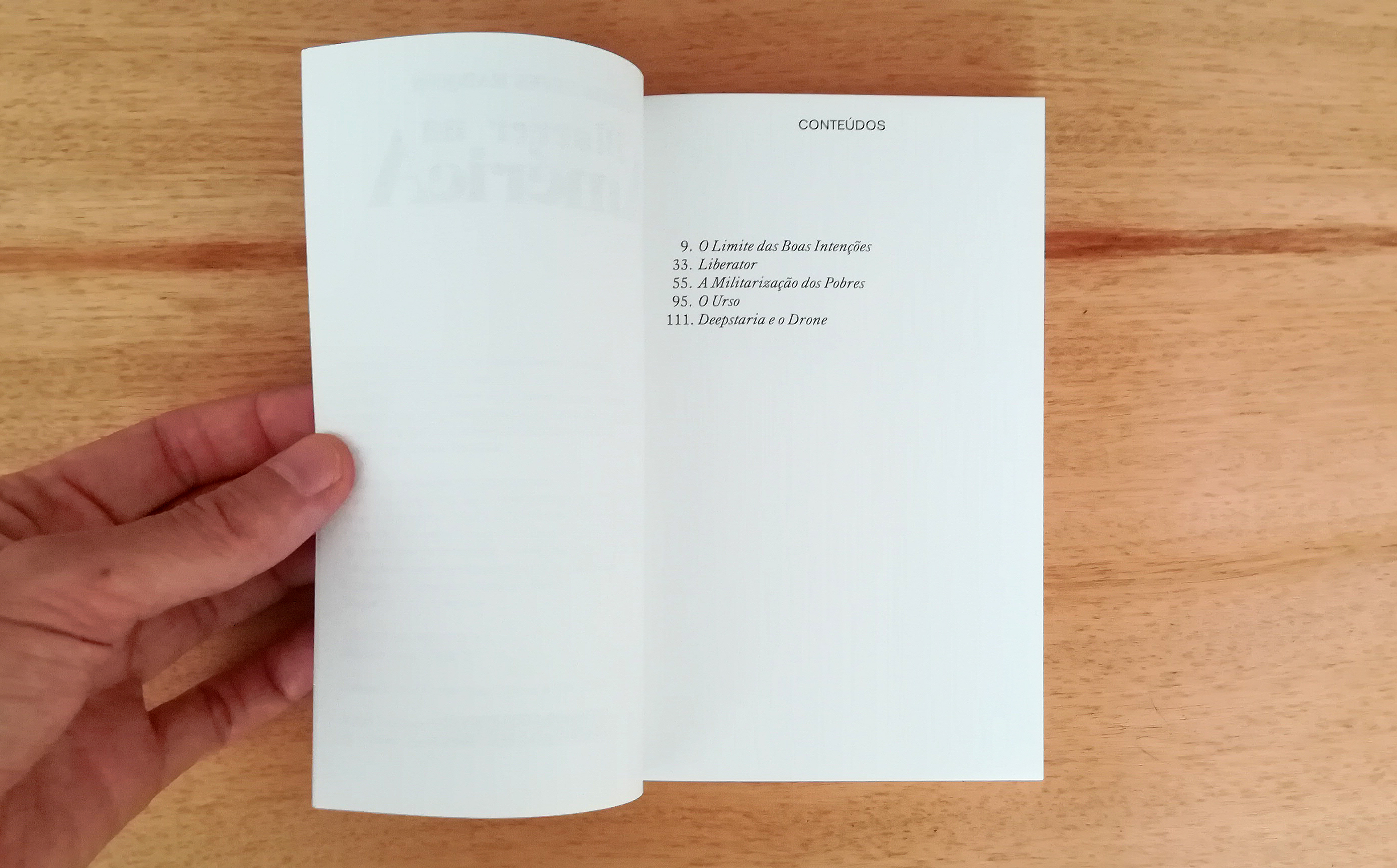
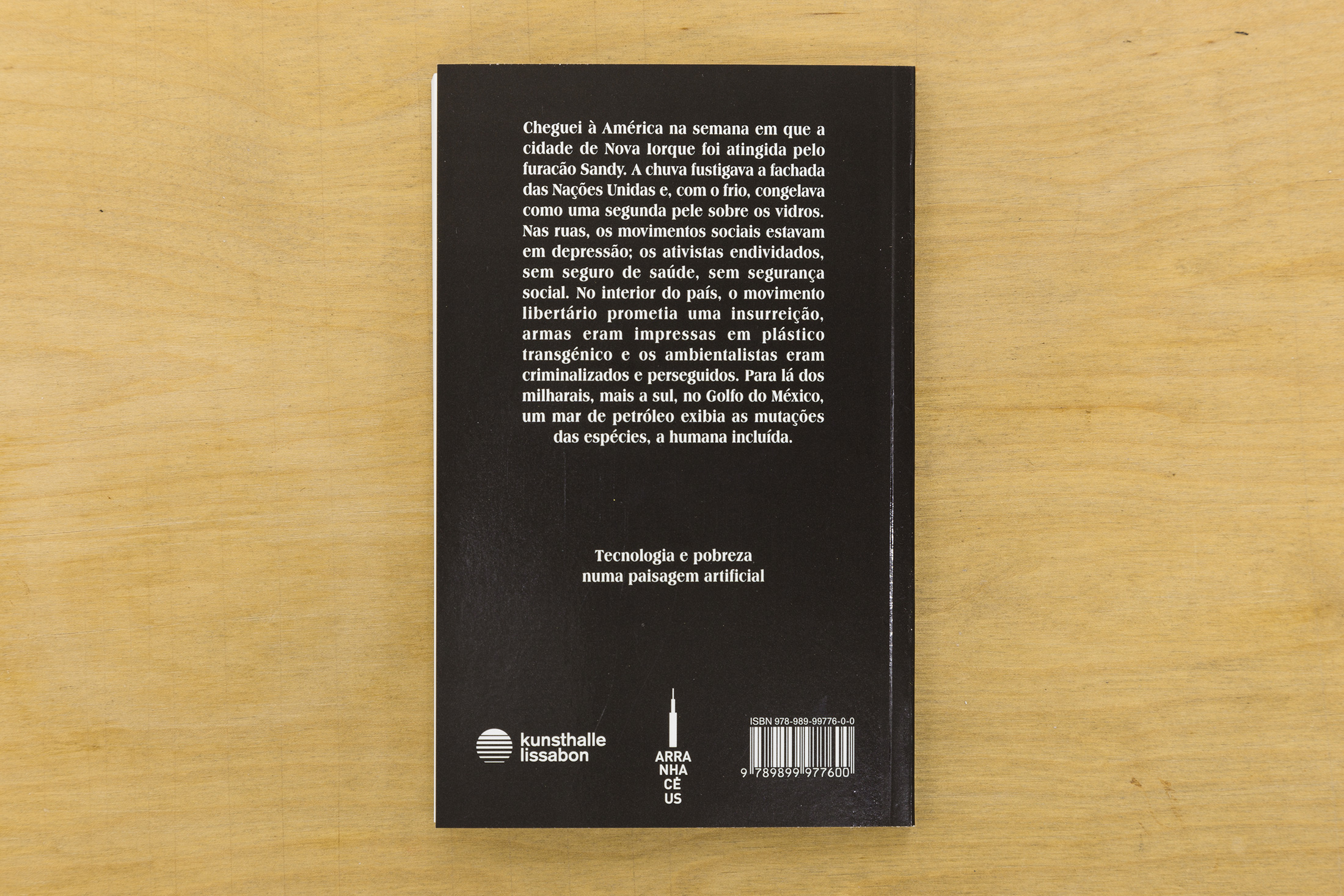
Morrer na América [Dying in America]
Colectânea de contos por Pedro Neves Marques
(Kunsthalle Lissabon e Arranha-Céus, 2017; Portuguese only)
“Cheguei à América na semana em que a cidade de Nova Iorque foi atingida pelo furacão Sandy. A chuva fustigava a fachada das Nações Unidas e, com o frio, congelava como uma segunda pele sobre os vidros. Nas ruas, os movimentos sociais estavam em depressão; os ativistas endividados, sem seguro de saúde, sem segurança social. No interior do país, o movimento libertário prometia uma insurreição, armas eram impressas em plástico transgénico e os ambientalistas eram criminalizados e perseguidos. Para lá dos milharais, mais a sul, no Golfo do México, um mar de petróleo exibia as mutações das espécies, a humana incluída.”
O livro agrupa cinco contos – "O limite das Boas Intenções", "Liberator", "A Militarização dos Pobres", "O Urso" e "Deepstaria e o Drone" – a maioria deles inéditos e que se congregam para pensar tecnologia e pobreza numa paisagem artificial.
Pode ler um dos contos aqui: O limite das boas intenções
Pode ler uma introdução ao livro aqui: Notas
À venda em Kunsthalle Lissabon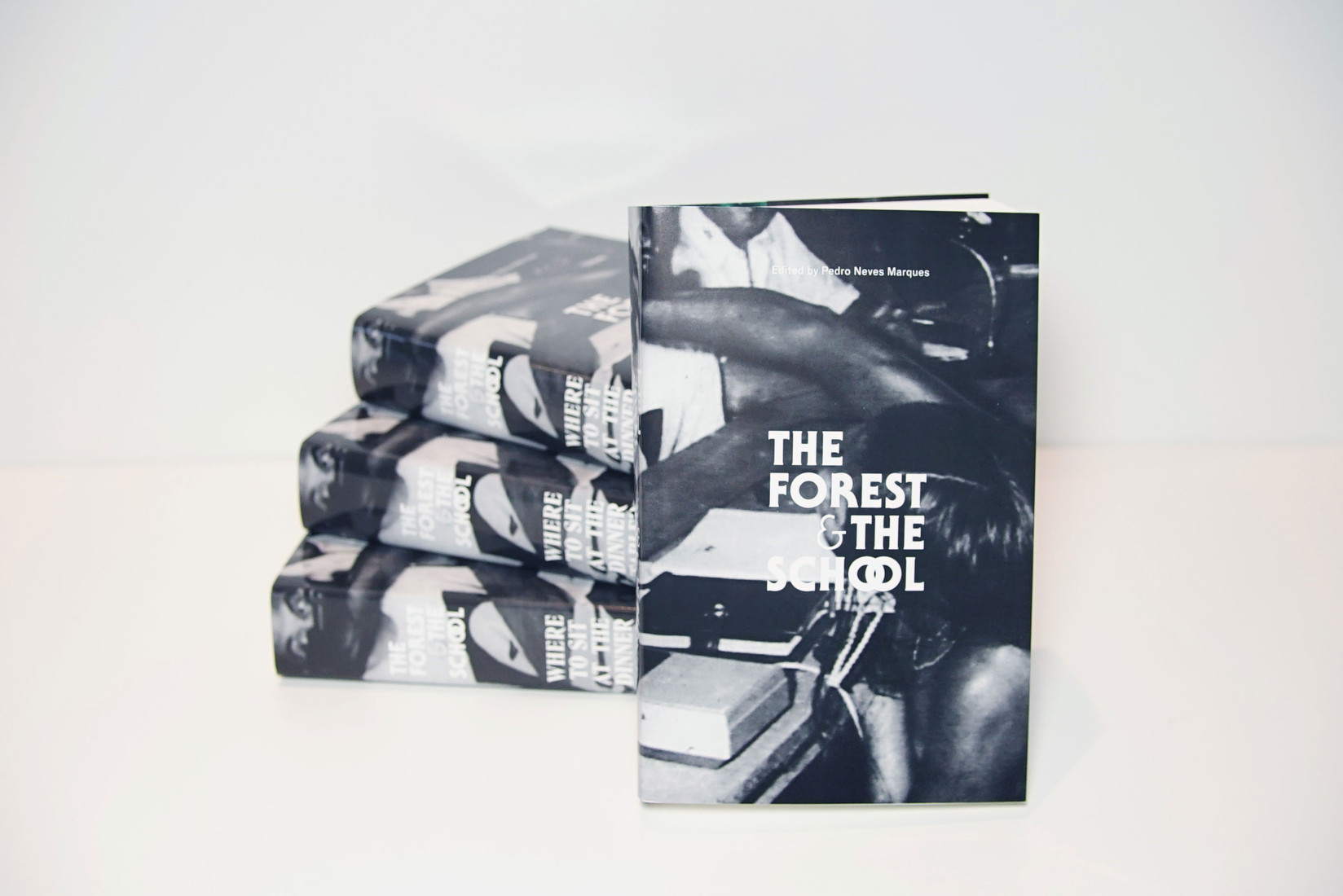
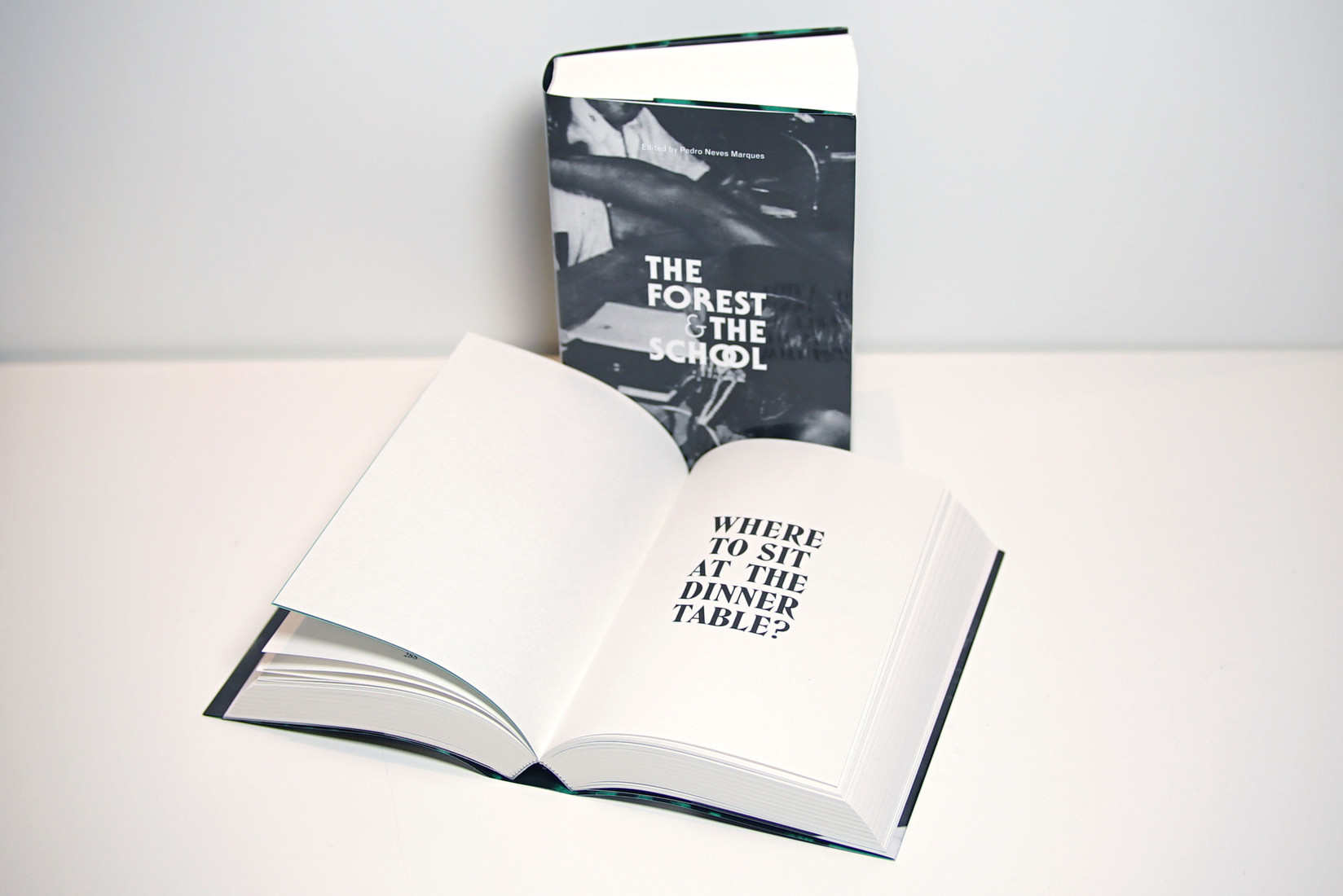
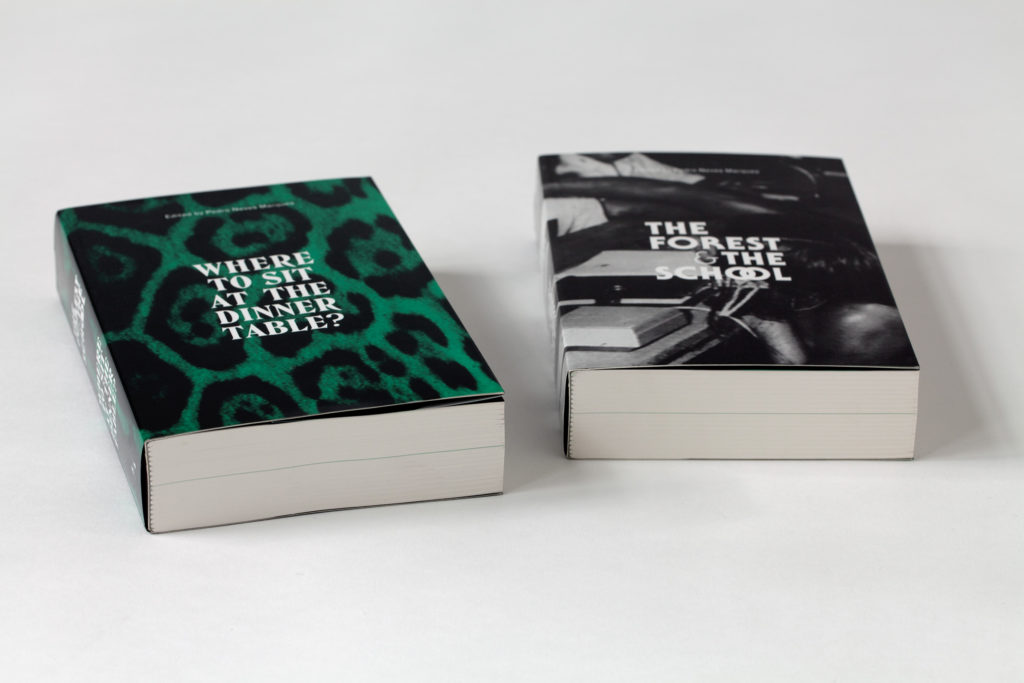
The Forest and The School / Where to Sit at the Dinner Table?
Critical anthology, ed. Pedro Neves Marques
(Archive Books and Academy of the Arts of the World Cologne, 2015)
Edited by writer and visual artist Pedro Neves Marques, The Forest and The School is the first comprehensive anthology in English about the Brazilian tradition of Antropofagia (meaning anthropophagy or cannibalism). Taking an anthropological and ecological rather than strictly artistic approach, the books contextualizes Antropofagia not simply as an aesthetic movement but as a true South American cosmopolitical philosophy.
In the sixteenth century the image of Amerindian anthropophagy or cannibalism was at the center of the philosophical dispute on the meaning of humanity itself. This question was rediscovered in the early twentieth century by the Brazilian avant-garde associated with the imprint Revista de Antropofagia and the revolutionary ideas expressed in Oswald de Andrade's 1928 "Anthropophagic Manifesto." Instead of rejecting a dominant Western culture, Antropofagia makes use of the concept of anthropophagy to call for the predation and transformative digestion of modernity's paradigmatic divisions, such as nature and culture, human and animal, object and subject, as well as labor and technology from a utopian techno-socialist pespective. Thus this anthology revisits Anthropofagia as a cosmopolital philosophy; a cannibal metaphysics extending well beyond a pacifying, multicultural view of appropriation. Eating another human is to cross the ontological boundaries imposed by Western modernity, by capitalist labor and the Cartesian-Freudian self. Nature and culture are in the perspective of the hunter and the hunted. To become prey is the movement of humanity.
The book brings together sixteenth century chronicles about indigenous cannibal rituals; seminal texts from the modernist Antropofagia movement and thier magazine by Oswald de Andrade, Flávio de Carvalho, or Raul Bopp; postwar writings by Glauber Rocha and Hélio Oiticica; as well as anthropological texts by the likes of Pierre Clastres, Bruno Latour, and Eduardo Viveiros de Castro. These source readings are followed by recent or newly commissioned texts confronting Antropofagia with multinaturalist perspectivism and the cosmopolitical turn in anthropology, the ecological promise of the Declaration of the Rights of Nature, and the centrality of indigenous peoples for current political struggles.
You can read the book's introduction here
Buy books at Archive Books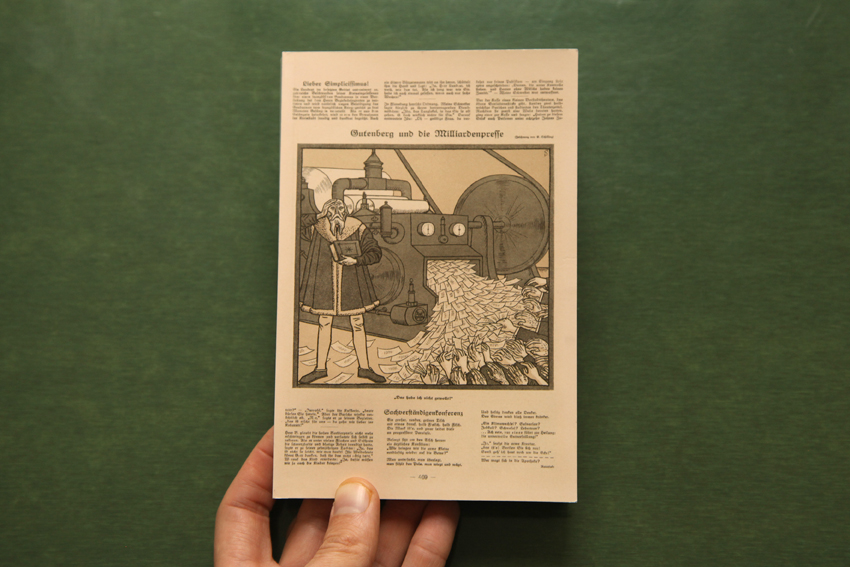
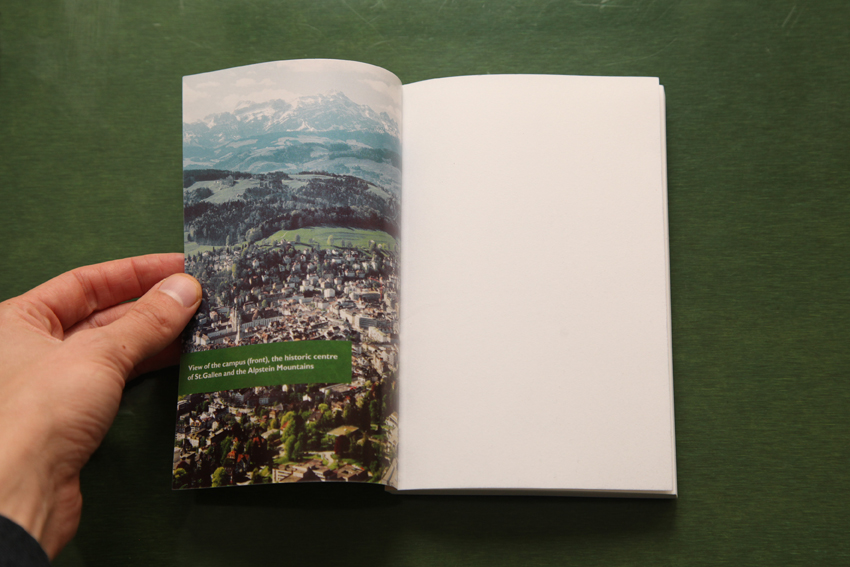
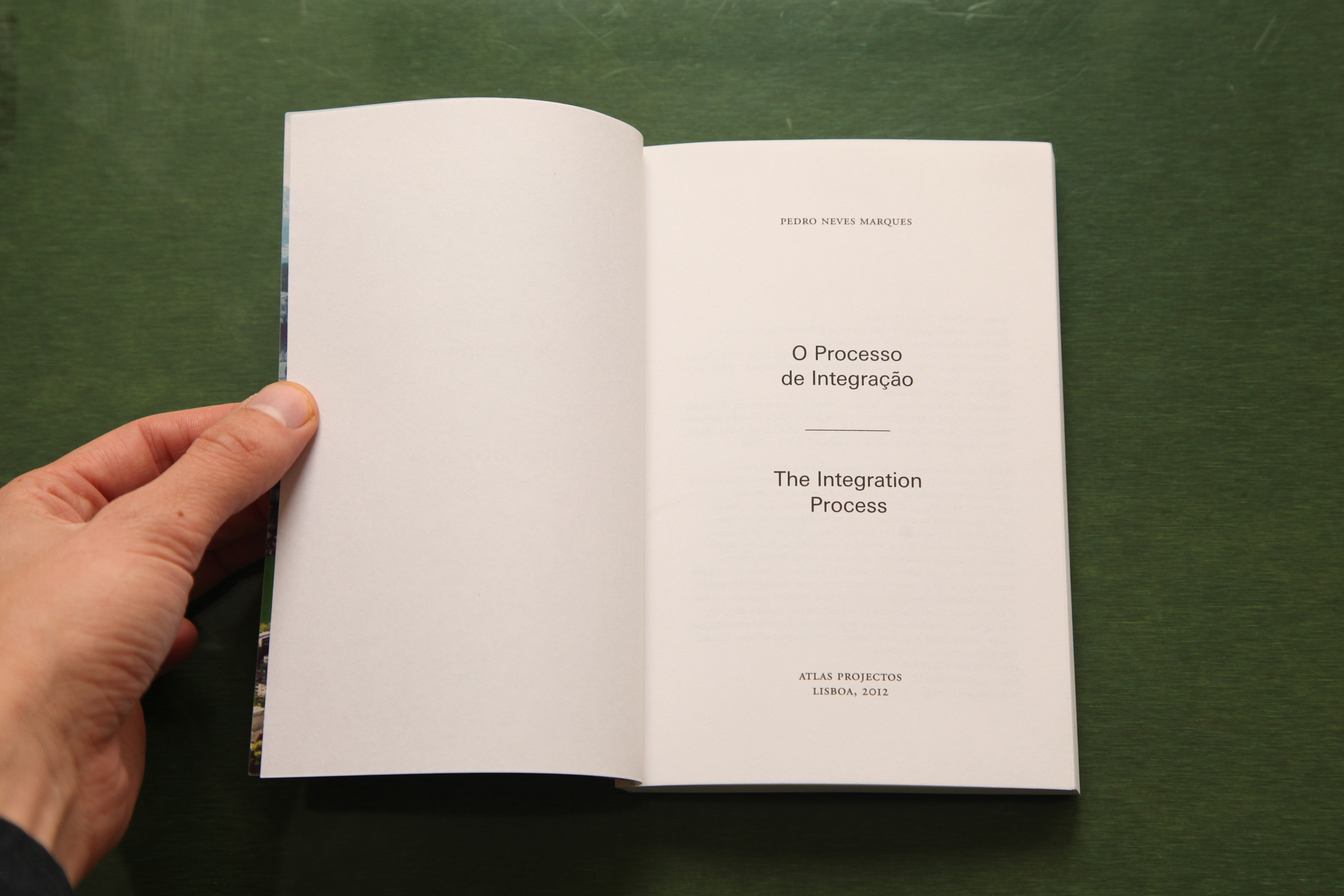
The Integration Process / O Processo de Integração
Collection of short stories by Pedro Neves Marques
(Atlas Projectos, 2012; Portuguese/ English bilingual edition)
In Neves Marques' first book of fiction, each story takes on a distinct style of speech and point of view as a reflection of the story's context and content. "The Anonymous Life of Patek Philippe" introduces us to the intricacies of value attribution at play in the Swiss watch brand through the perspective a wristwatch; "A Numismatic Faustian Tale2 describes a would-be setting around the printing of Notgeld (emergency money) during the inflation crisis of the Weimar Republic; "On Escolha (André Guedes, 2007)" analyses and reassesses in the style of an oblique art review an artwork by artist André Guedes; and "The Integration Process" presents the St. Gallen Management School, where since the 1960s economics and ecology have been brought together under the field of management. Each short story is illustrated by one of the four images that embrace the book and make up its cover.
You can read a short story here: The Integration Process
Buy books at Atlas Projectos